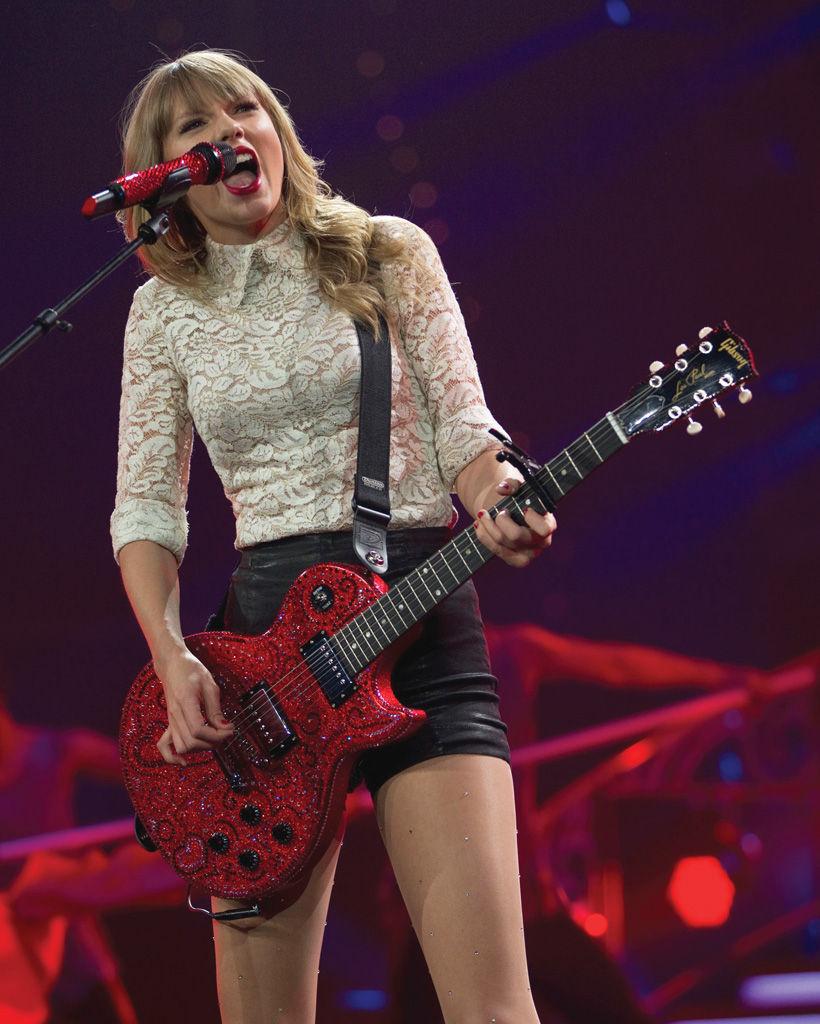Editorial: Swift knew Spotify was trouble when she walked in


To the dismay of many open and closeted Taylor Swift fans, the pop sensation removed her music from the popular music streaming service, Spotify.
The sudden break-up came four days after the release of her much-anticipated album, 1989, when Swift and her record label Big Machine requested to leave the music service. Since then, Spotify has been trying to convince Swift to change her mind and return to the service, creating a Twitter campaign about the debacle with the hashtag #justsayyes — which quotes lyrics from her 2008 song, “Love Story.”
It’s unclear why exactly Swift and her label decided to leave Spotify, but there are speculations. Maybe it’s all a publicity stunt to get people to actually buy her new album? Or, maybe she just needs another breakup to write a song about?
Or perhaps Swift’s departure from Spotify encapsulates the perpetual conflict between the music industry and popular music streaming services?
Swift wrote an op-ed this past July in the Wall Street Journal summarizing her gripes with free music streaming, like that on Spotify.
“Music is art, and art is important and rare,” Swift wrote. “Important, rare things are valuable. Valuable things should be paid for.”
In the op-ed, Swift compared music to other forms of art, like writing or painting. If creators of these other forms of art get to decide the worth of their products, why is it different for musicians?
Swift has a point — music is an art form, and it seems odd that we should separate it from other forms of art. After all, we don’t place the same value on a Monet that we do for something your little cousin finger-painted — both have inherently different values, which are based on the tastes of those consuming and producing the art. Same goes for books — a copy of “Superfudge” by Judy Blume just isn’t the same as a leather bound copy of Charles Dickens’ “A Tale of Two Cities.”
Clearly, value in other forms of art is derived from a connection between the artist and the viewer and/or reader. Why then, does music, a very intimate form of art for most people, not have this?
Thom Yorke, the frontman of the bands Radiohead and Atoms for Peace, told The Guardian the situation arises because streaming music services, like Spotify, act as “gatekeepers” between the artists and the fans. According to Yorke, this severs the artist-to-fan connection that allows value to be derived out of music, like other art forms.
Yorke cited the release of Radiohead’s 2007 album, In Rainbows, as an example of how this connection could be reached through music — this album was self-released online, and the band allowed fans to set their own price for the download.
“When we did the In Rainbows thing, what was most exciting was the idea you could have a direct connection between you as a musician and your audience. You cut all of it out, it’s just that and that,” he said. “[They] get in a way, like Spotify suddenly trying to become the gatekeepers to the whole process.”
Perhaps Taylor Swift is demonstrating a frustration similar to Yorke’s — maybe she wants a deeper connection with her fans and her art.
If music streaming services, like Spotify, value music as an art form, maybe they should consider what they may be doing to the quality of music by giving it away for free.
After all, T-Swift doesn’t need anymore teardrops on her guitar.
Recent Posts
Marquan Pope: The ultimate shark
One of the most remarkable things about sharks is that an injury doesn’t deter them.…
Who Asked? // Do we really get a summer vacation?
This installment of Who Asked? by staff writer Brynn Murawski mourns the seemingly impossible perfect…
Notes From an Average Girl // Notes from my junior year
In this edition of Notes From an Average Girl, senior staff writer Madeline Milchman reflects…
Meaning at the Movies // The Power of the Movie Theater
In this edition of “Meaning at the Movies,” staff writer Lauren Deaton discusses her love…
EMBRACE sponsors Black Maternal Health Wellness week
Because Black women’s maternal health is not institutionally prioritized, Pitt’s EMBRACE sponsored a Black Maternal…
Local ‘Standing Wave’ coffee truck energizes the Pitt food scene
The small business coffee truck “Standing Wave” has become a beloved new coffee spot on…